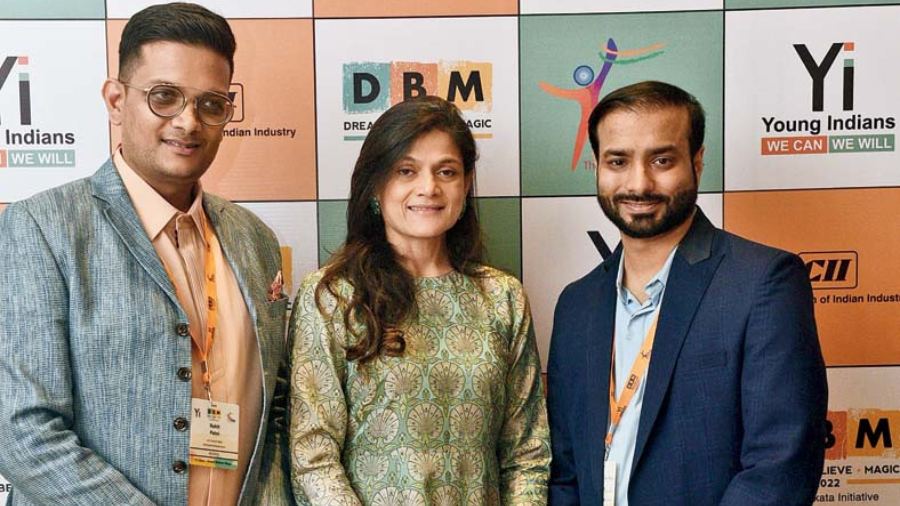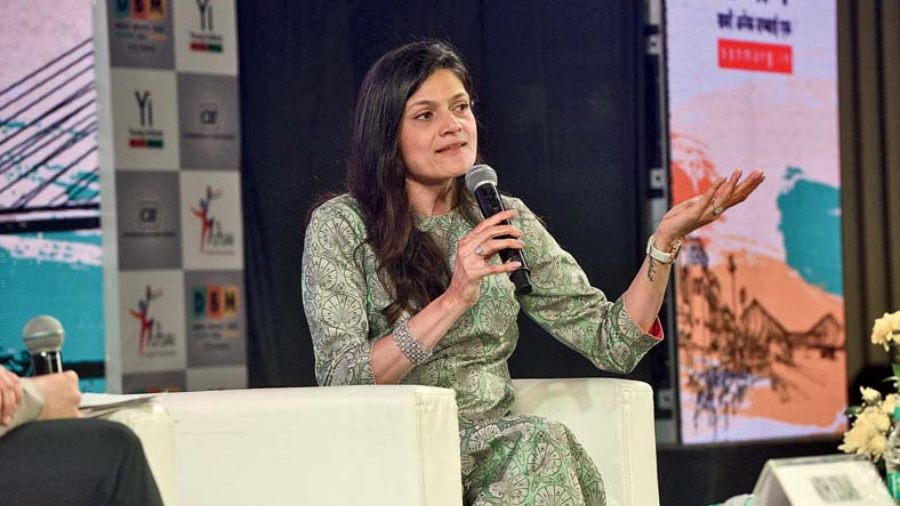The Young Indians Kolkata Chapter hosted a Keynote Session with Neerja Birla, founder and chairperson of Mpower, who discussed the contemporary mental health scenario. The enriching session spread over 40 minutes, was held at JW Marriott Kolkata, covered everything from perception and reception of mental health in India to the effect of the pandemic on mental health and even accessibility and destigmatising mental health.
The conversation began with Birla touching upon the reality of mental health in India. Along with a general lack of awareness, Birla also pointed out that the lack of resources was another primary factor. Stating that mental health was central to human beings, it was also emphasised that till our mental health is in a proper state, nothing else matters. Mental health is all-pervasive and one should acknowledge the dominant role it plays in every moment of our life. Drawing from her own struggles, especially battling postpartum depression, Neerja’s resolve strengthened to improve the awareness and resource factor surrounding mental health. She stated that had there been a proper awareness and resources available, one would have had a different experience regarding the same.
In addition to that, she also touched upon Covid and its devastating effect on people’s mental health too. While elucidating on the same, Birla stated that everybody should have the right to access resources to improve their mental health and good mental health should be considered a fundamental need. She also credited that the pandemic enabled people to acknowledge the true status of their mental health and be more vocal about it. Birla also drove home the point that the goal shouldn’t be to be happy all the time, as an expectation such as that was unrealistic. Life is about ups and downs and hurdles are a part of it. She stated that there is a difference between wanting to be happy all the time and wanting to be at peace.

(L-R) Rohit Patni (co-chair, YI Kolkata Chapter), Neerja Birla and Vaibhav Soni (chair, YI Kolkata Chapter)
Concentrating on accessibility, Birla also listed hesitancy as a major factor in accessing mental health services owing to the stigma around it. For example, one is comfortable going to a physician for a physical check-up but would refuse to spend the same for their mental health. In addition to the negative perception, there also exists a hesitancy amongst the masses regarding the cost of it, and hence Birla reinforced that efforts were being made to strive to promote accessibility not just in terms of facilities but also cost-wise.
The session came to an end with Birla highlighting that one should ‘grow through what they go through’ , followed by a vote of thanks.
“When Covid hit in March 2020, the world as we knew it stopped to exist. One thing that saw steady rise in the chaos was mental distress and people realised how important it was to be at peace within. While at Young Indians we have been doing our bit, no one is as passionate as Mrs Birla on this subject. Her work in this field is inspirational and we wanted to work with her to normalise and destigmatise mental health issues. MPower as an organisation is changing the face of mental health facilities. Our idea was to start a conversation that stays in people’s minds. To tell them it is okay to not be okay and also to accept someone else seeking help,” elaborated Vaibhav Soni, chair, Young Indians (YI) Kolkata Chapter.
Neerja Birla said “interaction is the best way to learn”. “I am looking forward to learning from the youth because that’s where the real change begins. I wish to learn from there and take back a lot of their experiences and see how we can incorporate that into the work we’re doing. We’re trying to create awareness to alleviate the stigma around mental health and eventually, the way I envision it, is that everybody who is going through a mental health illness will have the right to live a productive life. We’ll only be able to do that when we’re able to alleviate the stigma and provide good clinical care to people,” she told The Telegraph.
Pictures: Rashbehari Das
